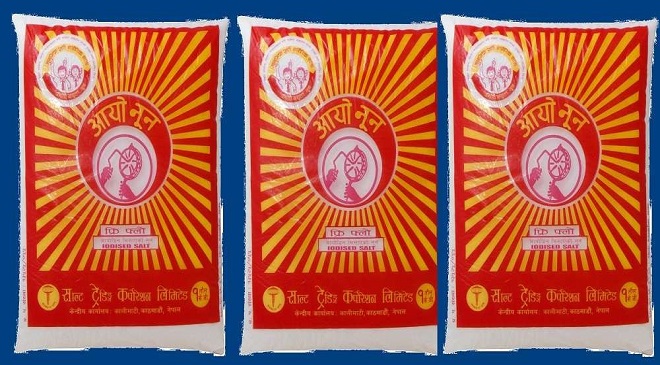Act related to Production and Sale of Iodised Salt implemented after 26 years
Kathmandu: The government has implemented an Act related to the production and sale of iodised salt after 26 years of its enactment.

The Act was formulated in 2000. The Act came into implementation after a meeting of the Council of Ministers on April 15 passed a proposal to this effect presented by Minister for Health and Population Pradip Paudel.
With the implementation of the Act, the legal way has been opened to work on solving the health problems found in children due to the excess intake of iodine, which was pointed out by research conducted by the Ministry of Health before this.
It was stated that the Act would come into effect after a notification on the issuance of the Act is published in the Government Gazette. The notification on the issuance of the Act was published in the Gazette on January 15, 1999.
However, the Act has not come into implementation so far, as successive governments since 1999 have failed to publish in the Gazette a notification on the implementation of the Act.
As a result, regulations and guidelines could not be formulated for the implementation and regulation of the Act. Now, with the implementation of the Act after two and a half decades, the legal process has been opened for the Ministry to proceed with the work in this regard.
A meeting of the Council of Ministers on Tuesday decided to publish the Gazette notification with effect from July 17.
Chief of the Nutrition Section under the Department of Health Services at the Ministry of Health, Lila Bikram Thapa, said that a research carried out a decade ago by the Ministry of Health had shown serious health problems due to the excessive intake of iodine in children as it was based on the past standards regarding iodine content in salt.
In a micronutrient assessment survey conducted by the Ministry of Health and Population in 2016, iodine content in the urine samples collected from children aged six to nine years was found to be 314 micrograms per litre, whereas the accepted iodine content was 300 micrograms per litre. Doctors say that due to this, high blood pressure, thyroid and other problems are seen.
‘Now with the publication of the latest Gazettee notification related to implementation of the Act, it will be easier for the Ministry of Health, Agriculture and related bodies to enact the related regulation and revise the standards or carry out other necessary works,’ said Dr Prakash Budhathoki, the Spokesperson of the Ministry of Health and Population.
RSS







Comments